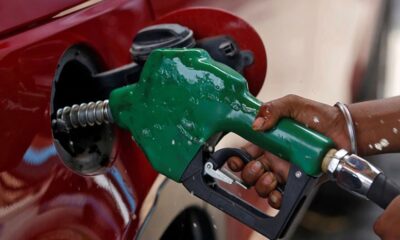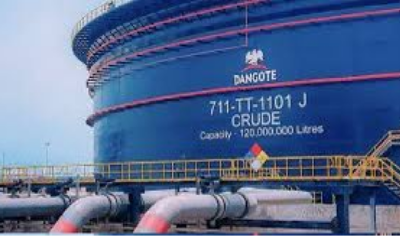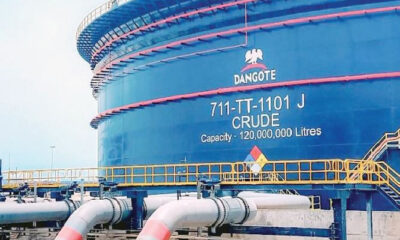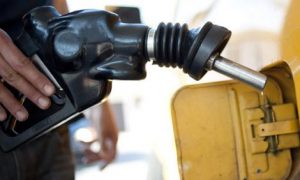Nigeria News
Naira-for-Crude deal: NNPCL delivers four cargoes to Dangote refinery
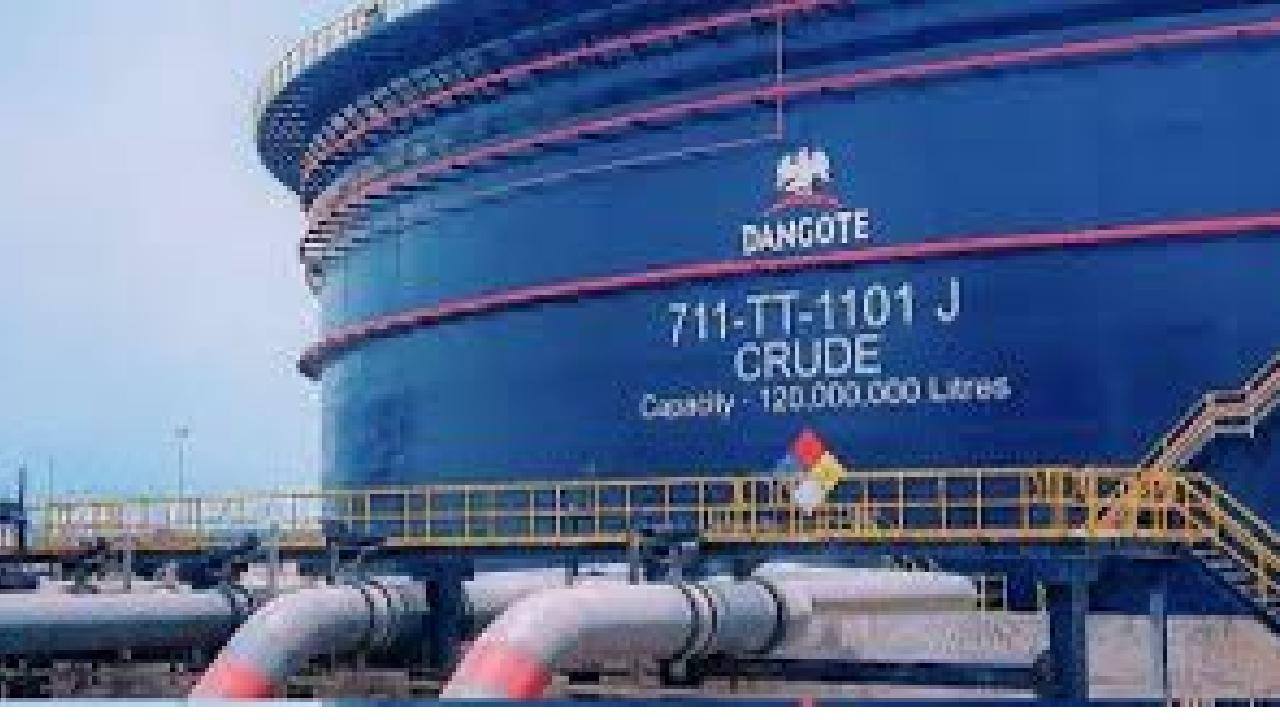
The Dangote Petroleum Refinery has received four cargoes of crude oil from the Nigerian National Petroleum Company Limited (NNPCL) as part of a naira-for-crude sale agreement, officials from the refinery and the Federal Government confirmed on Tuesday.
Sources indicated that these cargoes were delivered within the last three weeks, coinciding with the government’s initiative to sell crude to local refineries in local currency.
According to informed sources, the Dangote refinery is awaiting additional crude oil cargoes from NNPCL, which manages the nation’s hydrocarbon resources. The $20 billion refinery, located in Lekki, is also preparing to start selling refined Premium Motor Spirit (commonly known as petrol) directly to domestic dealers.
A source close to the Technical Subcommittee on Domestic Sale of Crude Oil in Local Currency, who requested anonymity, confirmed to The PUNCH that “more cargoes will be delivered to the Dangote refinery in the coming weeks.”
This program began with the Dangote refinery as the only operational petrol-producing facility in Nigeria.
A senior official from the refinery confirmed this development, noting that the first phase of the naira-crude sale agreement is set to last for six months unless renewed by the Federal Government. The official did not disclose the cost of the crude oil per barrel.
“The naira-for-crude deal has commenced. The Dangote refinery has received four cargoes so far and is expecting more. The deliveries occurred within the past three weeks, and we anticipate additional cargoes in the near future,” the official stated. “It’s important to remember that this first phase of the naira-crude sale is only for six months, and the government may choose to renew it afterward.”
It’s worth noting that the refinery, which has a capacity of 650,000 barrels per day, faced challenges securing crude when it began operations a few months ago. Alhaji Aliko Dangote, President of the Dangote Group, expressed concerns that some international oil companies (IOCs) were attempting to sabotage the investment by withholding crude supplies.
The Dangote Group alleged that the IOCs insisted on selling crude oil to the refinery through foreign agents, leading to rising local crude prices due to cargo offers that were $2 to $4 per barrel above the official price. They also claimed that foreign producers seemed to prioritize Asian markets for the crude produced in Nigeria.
Despite the intervention of the Nigerian Upstream Petroleum Regulatory Commission (NUPRC) in July, the Dangote Group maintained that the IOCs continued to obstruct the refinery’s requests for locally-produced crude.
Mr. Devakumar Edwin, Vice President of Oil & Gas at Dangote Industries Limited, stated, “If the Domestic Crude Supply Obligation guidelines are properly enforced, it will enable us to engage directly with the companies producing crude oil in Nigeria, as mandated by the Petroleum Industry Act.”
He emphasized that the IOCs operating in Nigeria had repeatedly frustrated the company’s requests for locally-sourced crude for refining. Edwin explained that when the trading arms offered cargoes, they often came with a premium of $2 to $4 per barrel above the official prices.
“In April, for instance, we paid $96.23 per barrel for a cargo of Bonga crude (excluding transport). This price included a $90.15 dated Brent price, a $5.08 NNPC premium, and a $1 trader premium. That same month, we managed to purchase WTI at a dated Brent price of $90.15 plus a $0.93 trader premium, including transport. However, when NNPC lowered its premium based on market feedback, traders started asking for premiums as high as $4 per barrel for Bonny Light cargoes.”
Data from platforms like Platts and Argus indicated that the prices offered to the Dangote refinery were significantly higher than market prices tracked by those platforms. Edwin noted that they had to escalate these pricing issues to the NUPRC in July, urging the commission to reassess the pricing problem.
In light of these controversies, President Bola Tinubu proposed during a Federal Executive Council meeting on July 29 to sell crude to local refineries in naira. The council approved Tinubu’s proposal, making the Dangote refinery and other upcoming refineries the focal points for the sale of crude in local currency.
A media aide to the President, Bayo Onanuga, indicated in July that “the exchange rate will be fixed for the duration of this transaction.” However, it remains unclear whether the Federal Government has set the exchange rate for the current transaction with Dangote.
Industry operators have suggested that the price of Premium Motor Spirit (PMS) could drop if the government sells crude to local refineries at a pegged exchange rate of N1,000 to a dollar, rather than N1,600.
As reported, the implementation committee led by Edun stated that the sale of crude oil in naira began on October 1 as scheduled. On September 13, 2024, the committee announced that the Federal Executive Council had approved the sale of crude to local refineries in naira and the corresponding purchase of petroleum products in the same currency.
“Starting October 1, NNPC will supply about 385,000 barrels per day of crude oil to the Dangote refinery, to be paid for in naira,” the committee declared.
This means NNPC will supply approximately 11.5 million barrels of crude to the Dangote refinery monthly, with the refinery expected to release equivalent volumes of refined diesel and petrol to the domestic market in naira.
With the receipt of four cargoes, the refinery is set to sell petrol, diesel, and aviation fuel to marketers in local currency.


